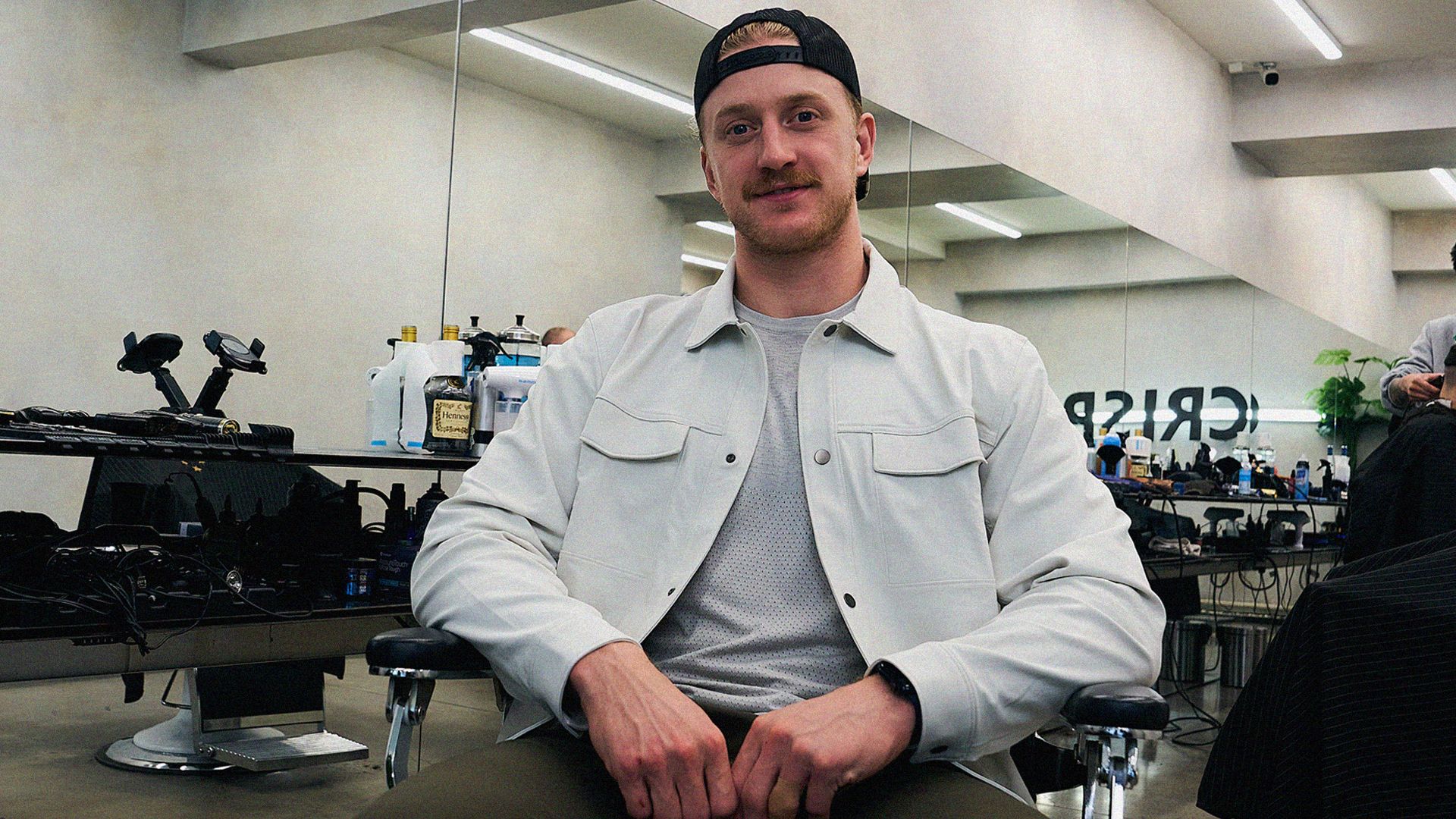

The conversations Michael Pezzetta hopes his Mo will start
Why I Mo
I first got involved with Movember in junior hockey. At the time I couldn't really grow a moustache, but I would raise money with family and friends. As I got to know more about Movember, and why Movember exists, I started to really dial in to what it meant to me. To me, it’s about raising awareness for men’s health, but mental health is really what spoke to me.
In hockey, it’s a very macho sport. Everyone feels like they’ve got to be a “manly man”. This isn’t always the best plan of action. It’s difficult for a lot of men to speak about how they’re feeling.
When I was going through juniors, players had to go through mental health courses, so that we could spot the signs in other people who might be struggling. I raised my hand to volunteer. It really opened my eyes to the bigger picture.
Breaking the stigma in sport
Part of the way I used to cope was holding things in, and not being able to open up about them or really talk about them. But as I've gone on in my career, I’ve realized that that's not the best way to manage my emotions and my feelings. It's something that’s just the culture in sports. It’s always been, “Just suck it up “or “Be a man, figure it out yourself.” It's something that I'm continuing to work on. I continue to try to push myself to be more open and be able to have tougher, important conversations that I used to try to avoid.
When I was younger and in junior hockey, I definitely kept more things to myself. And then, as I developed and got into the professional league, I realized that it would make me feel more anxious, like I was on an emotional roller coaster that I didn’t need to be on. I found that speaking up about how I was feeling or about what was going on at the moment, and having better communication with guys in the team, my family or my girlfriend helped me to feel more comfortable. It made me feel better mentally and put me in a better place, so that I didn't just dig myself in this hole.
Starting conversations in the league and beyond
I play the game hard. I'm someone that never takes a shift off. You can look at my game, and you could assume that, “Hey, this guy's a hard dude.” Sure, that’s how I am on the ice, because that’s how I play. That's how I have to be. But you don't have to take that to everyday life. You have to be able to open up. You have to be able to express how you're feeling and find people that you trust that you can share those emotions with. So, you don't let everything just pile up inside.
Being in the NHL, I’m proud to grow out my Mo, and deliver the message about Movember in the dressing room and beyond. Last year, me a few of the other teammates did a dressing room chat about mental health. My hope is that whether it’s one person or 100 who see this, that they think, “Here’s this guy who plays hockey, who plays it hard” who they think wouldn’t speak up about what he’s feeling or what he’s thinking. But they see me out here talking, saying, “this is how I feel.” I want people to know it’s okay to speak up. You should be speaking up to people about how you feel. It could completely change your life. Even just asking someone who’s growing a Mo what it means to them. It opens up a conversation, and those conversations can open something up for life. Movember’s a great time to build those relationships. Raising these funds and this awareness so we can save more people, allow more people to join programs that support mental health – that can flip the script for somebody. It means a lot to me to be a part of that. If you’re thinking about joining Movember, do it. Whether you can grow a moustache or not. It’s something that once you start, it will grow on you. It did on me. Just go for it.
Support Michael and his mission to change the face of men’s health.